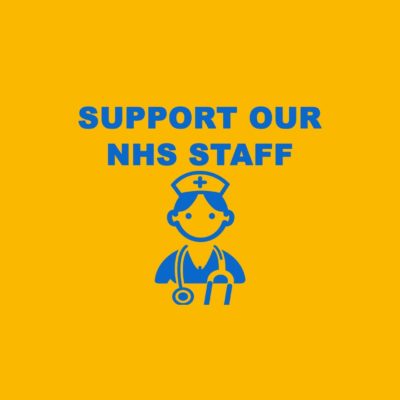
Last year GPs were stampeded into signing up to join Primary Care Networks (PCNs), with the offer of extra funding per patient, plus funding and extra staff to help deliver services.
But now NHS England has produced specifications for five Directed Enhanced Services (DES) which GPs are expected to deliver through the new networks from April, it’s becoming increasingly obvious that there is neither the money, the staff or the time available to do the work.
The situation was not helped by NHS England – as with so many of their controversial plans – putting proposals out for consultation on 23 December, apparently expecting GPs to submit replies over the Christmas break.
While the principle of GP practices working together over a wider practice area and sharing the use of supporting staff including community pharmacists, physiotherapists and ‘social prescribers’ as well as expanded community health provision sounded fine in abstract, the reality is that few of the promised resources exist, and the workload on GPs, especially the Clinical Directors who would take the lead in each PCN on a part-time basis, would increase.
The Local Medical Committee covering GPs in Berkshire, Buckinghamshire and Oxfordshire has concluded that the extra costs of delivering the first five DES (Structured Medication Review, Enhanced Care in Care Homes, Anticipatory Care, Personalised Care and Supporting Early Cancer Diagnosis) could be a staggering £105,000 per annum per GP practice.
Out of business
That would be enough to put GPs out of business. And this estimate assumes that the PCNs can not only recruit staff (as yet unknown) and employ them at “the cheapest possible rate” – if not, the costs could be even higher.
The LMC has described the proposed specifications as “completely unrealistic” and called upon NHS England to cancel or freeze the plans until April next year, to allow them to be renegotiated – and allow GPs a vote on whether to go ahead. The PCNs were pushed through without GPs having any vote on the basic proposal.
GPs have now begun threatening to pull out of the networks, arguing that workload to deliver the new enhanced services would be overwhelming.
Several of the specifications assume the use of tools and systems that are not yet available, or community and voluntary sector organisations without any clear measures to ensure they deliver the required support, and pile tasks onto GPs without any adequate resources to make them possible.
The requirement for supporting early cancer diagnosis seems to dump onto GPs responsibilities that clearly should be undertaken by the hospital trusts themselves after patients are referred.
One South Cumbria GP has published his response to NHS England’s questionnaire, showing in detail why none of the specifications on their own is achievable and why all five together (with two more yet to come) are completely impossible.
No experience
On the proposals for “anticipatory care” he writes:
“I’m afraid this suggests the authors of this spec not only have no experience of normal general practice, they also have no experience of building and creating this sort of integrated service model.”
Another anonymous GP sums up a whole series of problems in a comment to the Health Service Journal:
“massive miscalculation of cost and workforce; … lack of staff to fill PCN roles, … total lack of attention to our existing crisis.”
In response to the growing tide of anger amongst GPs, the HSJ reports that NHS England appears to be planning to drop two of the five published specifications – for “anticipatory care “ (which required GPs to identify the patients on their list with a year or less to live) and “personalised care” – but only delaying them until later in the 5-year PCN programme.
It also appears there NHS England may concede a reduction in the requirements for PCN staff and GPs to visit care homes as part of the “enhanced care homes” specification.
But with even the mild-mannered Royal College of General Practitioners calling for a complete rethink of the draft plans, and warning of the clear risk they could fail and undermine rather than strengthen GP services we will have to see how pig-headed national level bureaucrats will be, and whether or not there is any willingness of the Johnson government to show flexibility.
What’s clear is that even before the row over PCNs the shortage of GPs and the pressure on primary care services was a massive problem, and further antagonising GPs is likely to persuade even more to reduce their hours or retire early: the RCGP has warned that general practice has been “running on empty for too long”.
Over a third of GPs cut their hours in the last year, and even more are considering it for 2020, many blaming the long hours, increased workload and stress. A survey by the General Medical Council found 65% of GPs said they worked beyond their rostered hours every day, and 17% felt unable to cope.
The fully qualified GP workforce fell by 340 in 2019, leaving it more than 1,000 GPs smaller than it was in 2015 when Jeremy Hunt promised to recruit another 5,000.
Now ministers are committed to add another 6,000 doctors and 6,000 primary care professionals within 5 years – so sorting out the mess on PCNs is vital.
One of Boris Johnson’s early promises last summer after taking over as Prime Minister was to eliminate long delays in getting GP appointments; but nothing has changed. In November alone over 5 million patients seeking GP appointments (almost one in five) had to wait over 2 weeks, almost 3 million over 3 weeks and 1.4 million over 28 days.
This article was originally published in Health Campaigns Together issue 17.







Leave a Reply